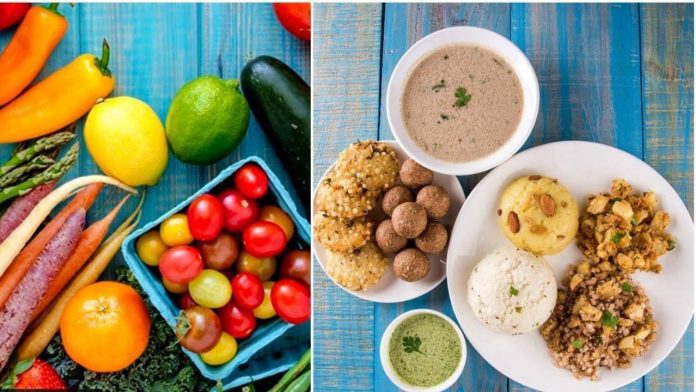Come Shravan, worshippers observe Sawan Somwar fasts and ask Lord Shiva for his blessings on health, wealth, and the accomplishment of their wishes. While married women pray for marital bliss, single women observe these fasts in an effort to find a suitable partner. Due to Mal Maas, Shrawan this year was extended from the customary one month to two. Thus, Sawan will have 59 days total, beginning on July 4 and ending on August 31. Instead of four Sawan Somvaar or Sawan Mondays, there will be eight. The first Sawan fast will be held on July 10 and the last one on August 28 because July 4 falls on a Tuesday.
One should drink enough of water and eat vrat-friendly foods that are nutritious rather than opting for deep-fried and sweet dishes when following Sawan Somwar fasts. To improve gut health, one should also get enough sleep and take probiotics in their diet.
Optimal dietary advice for Sawan Somwaar fasting includes:
1. Drink plenty of water to avoid headaches as you start your day.
It’s important to maintain hydration if you want to start your day off well. It is advised to include hydrating drinks like buttermilk, coconut water, lemon water, homemade iced tea, or homemade lemonade. These beverages replenish electrolytes and keep you hydrated all day long.
2. Eat a fruit that will give you a boost of energy.
Fruit is a quick and nutritious approach to increase your energy levels when fasting. Bananas are a great option because they are full of potassium, natural carbohydrates, and quick energy.
3. Consume nuts to maintain your level of energy.
Nuts are a terrific source of minerals and energy. Almonds, pistachios, walnuts, and figs are acceptable fasting food items. These nuts keep you full and energized by offering good fats, proteins, and dietary fiber.
4. Include curd with a bowl of fruits at noon.
Maintaining a healthy lunch that keeps the stomach full and cool is imperative. For optimal advantages, combine curd with a bowl of fruits. Curd is a probiotic-rich food. This mixture gives the body the nutrition it needs, helps with digestion, and keeps the body cool.
5. Avoid spices to prevent indigestion
Spices like black pepper, red chili, and green chili are best avoided when fasting to reduce heartburn and pain. To avoid any potential gastrointestinal problems that can emerge when fasting, one can use milder flavors and seasonings.
6. When breaking the fast, avoid eating large meals.
After a lengthy fast, care must be taken to break the fast. Avoid eating heavy foods that could cause serious gastrointestinal problems. To make digestion easier, it’s necessary to eat in moderation and choose lighter selections.
7. Include electrolytes
Dehydration and electrolyte loss are effects of fasting. Make careful to rehydrate with water that has been electrolyte-infused. Bananas, pistachios, coconut water, and salty meals are electrolyte-rich foods that are beneficial to consume before and after a fast.
8. Take into account boosting
Your body quickly runs out of nutrients when you fast. The majority of individuals also abstain from animal-based meals during the entirety of Sawan, which increases the danger of vitamin deficiencies. Amino acids, vitamin D, and B complex are important vitamins that can be quite beneficial at this time.
9. Foods for fasting
How healthy and useful your fast is greatly depends on what you eat in the days leading up to it. Make sure to consume a enough amount of protein and good fats, which aid the body in more readily sustaining fasting periods. Your body gets overly dependent on dietary sugar for energy if you just consume carbohydrates, especially refined carbohydrates, and sugar, which makes fasting exceedingly challenging.
10. Skip sabudana
Sabudana is a highly refined carbohydrate that raises blood sugar, despite being frequently consumed before and after a fast. Instead, choose healthy carbohydrate options like fruits, dates, and raw honey.

 हिंदी
हिंदी






